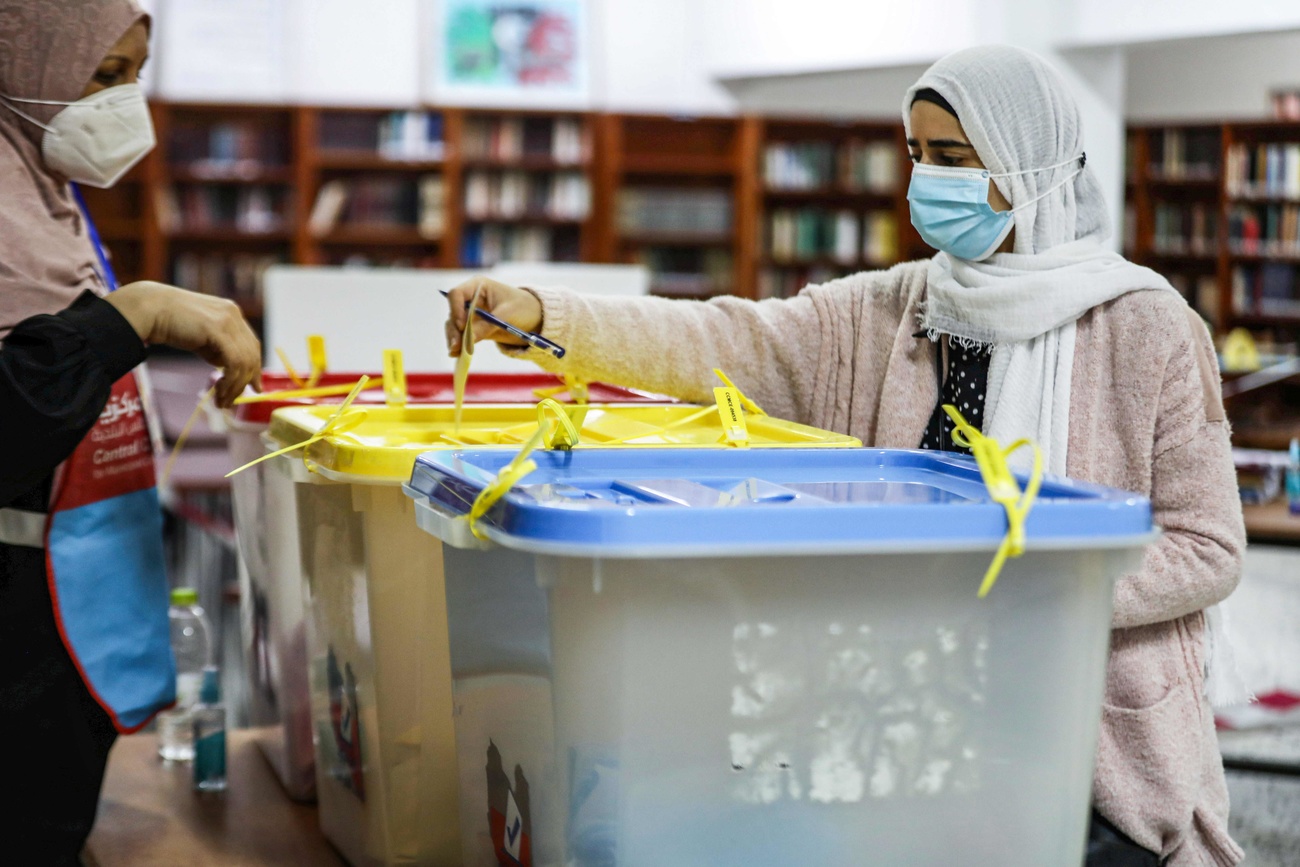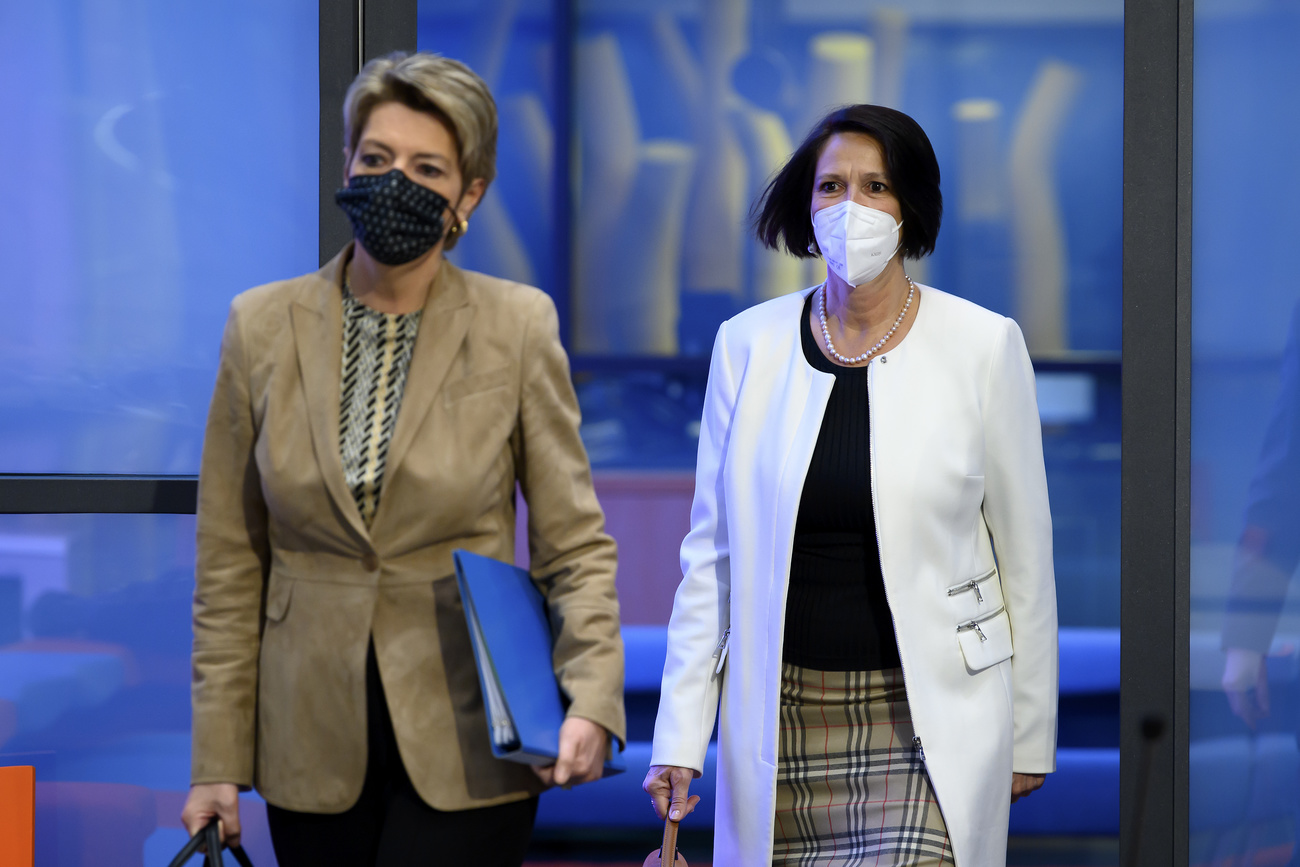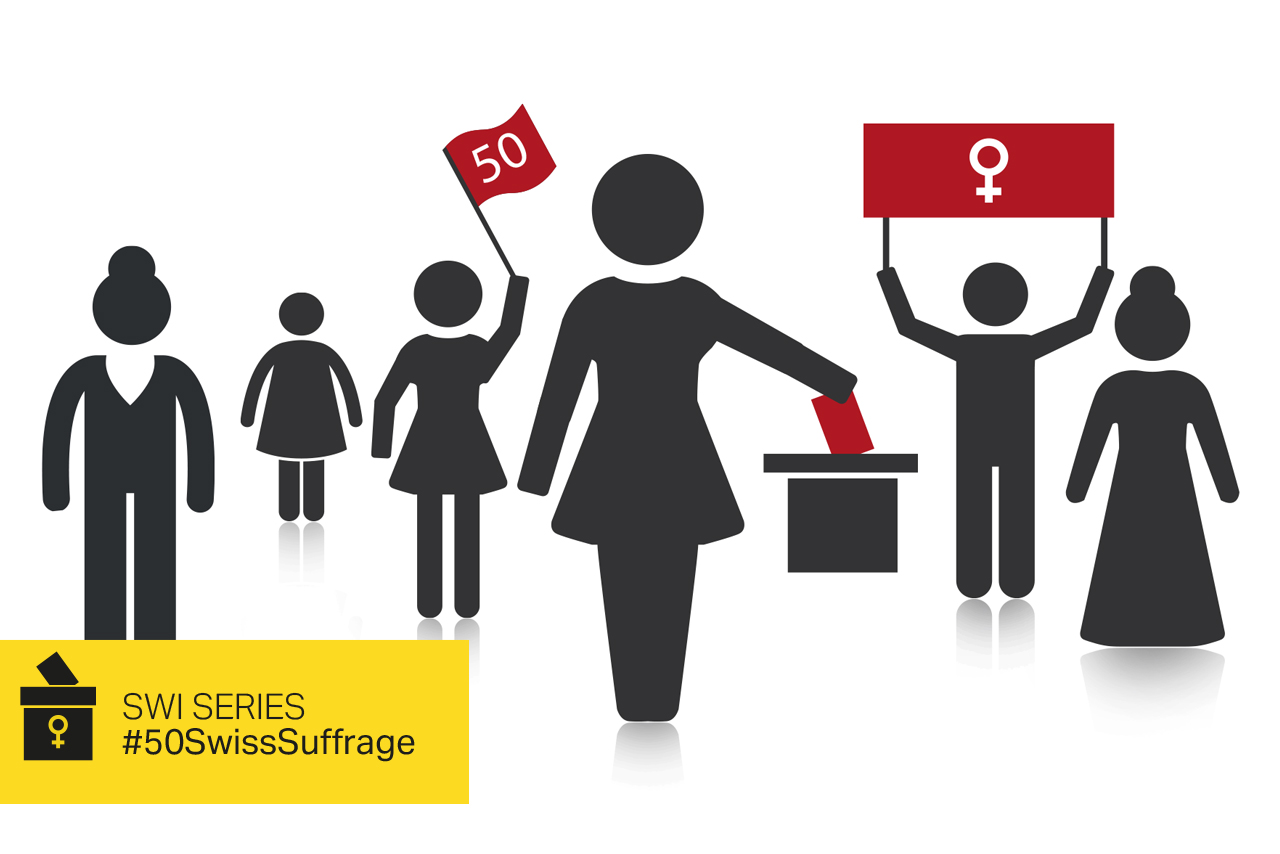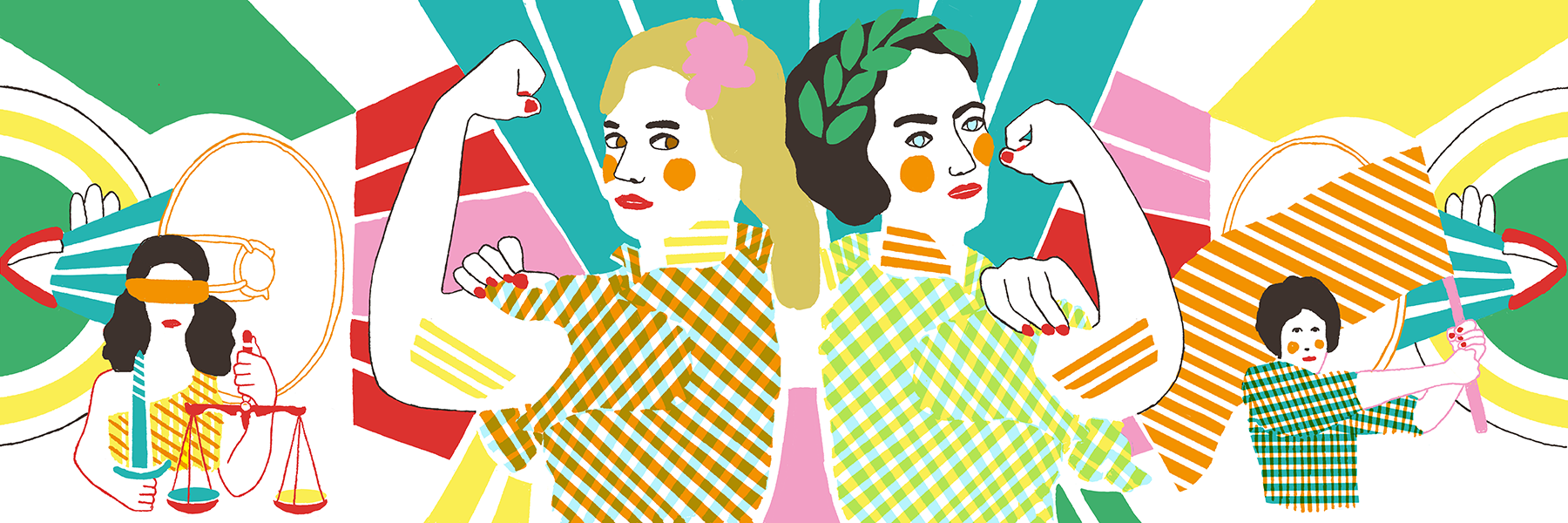
How women’s suffrage in Switzerland changed the world

When Swiss women were finally able to vote a half century ago, Switzerland was considered a backward, patriarchal country. Today, it is a global pioneer in promoting women’s rights.
The southern Libyan town of Sebha made history this spring. In mid-March, a well-attended local assembly adopted an action plan on equal rights for women and men in local politics for the first time. Women represented 45% of the assembly participants, Tunisian journalist Rachid Khechana told SWI swissinfo.ch. According to this longtime Libya correspondent, similar assemblies with women have taken place in 43 other Libyan towns in recent weeks with support from Switzerland.
In Geneva, female and male representatives from politics, civil society and business recently met and agreed on a new Libyan transitional government after years of civil war. For the first time, key ministerial posts will be held by women including Najla Mangoush as foreign minister and Halima Ibrahim Abderrahmane as justice minister.
“In peace processes, it is vital that women also sit at the negotiating table as members of civil society, as representatives of conflict parties and as mediators,” political scientist Sara Hellmüller told SWI swissinfo.ch.
Hellmüller, who hails from Bern, currently works as a researcher at the Graduate Institute of International and Development Studies in Geneva. Back in 2011, just one week after the death of Muammar Al-Gaddafi, she organized a civil society Future Forum in the Libyan capital, Tripoli. During her work at the Swisspeace research institute until 2019, Hellmüller supported peace processes in Libya as well as other conflict regions such as the Democratic Republic of the Congo, Darfur and Syria.
“Women are not necessarily more peaceful than men by nature, but their shared identity as women can have a connecting effect and contribute to new and more sustainable solutions,” she explained.

More
Swiss initiative supports women peacebuilders
Hellmüller is one of 15 women that have been selected to join the Swiss Women in Peace Processes network, launched this year on March 8 – International Women’s Day – under the aegis of the Swiss foreign ministry. The network brings together Swiss women from the diplomatic service, UN agencies and NGOs who are all working as peace-builders in different parts of the world.
It is an example of how Switzerland is increasingly raising its voice and championing equal rights on the international stage.
Switzerland also addressed the issue of the gender pay gap at a recent meeting of the UN Commission on the Status of Women in New York. “Women’s rights are human rights, and without human rights peace and development remain empty promises,” stressed Ambassador Simon Geissbühler, who heads the ministry’s Human Security Division. He added that Switzerland is guided by UN Resolution 1325, which is considered a global pillar of a feminist foreign policy.
Supporting women in politics
Switzerland is also supporting organisations to advance equal rights in politics. One of those is International IDEA, which promotes democracy worldwide. “We assist electoral authorities around the world in including women in electoral and voting processes,” explained Rumbidzai Kandawasvika-Nhudu, from Zimbabwe, who heads the Political Rights and Civic Participation at IDEA. The organisation currently has 33 member states, including Switzerland.

More
The introduction of women’s suffrage worldwide
“With the help of Switzerland, we are committed to achieving equal participation of women and men in politics,” pointing to efforts to advance the constitutional process under way in Chile. On April 11, a constitutional council will be elected there, with equal representation of women and men.
In the west African country of Benin, Switzerland is supporting women who are standing for political office. The proportion of elected women in local assemblies there has doubled over the last four years, as outlined in a reportExternal link by the Swiss Agency for Development and Cooperation.
In other places, ensuring the inclusion of women is a more difficult process, for instance in Saudi Arabia. “In our country, patriarchal norms still limit the freedoms and rights of women,” the Saudi women’s rights activist and professor Hatoon al-Fassi told SWI swissinfo.ch.

More
The long road to women’s suffrage in Switzerland
The promotion of equal rights in authoritarian regimes has pushed the limits of Swiss neutrality. “In such cases, it takes a lot of hard work behind the scenes, and sometimes we have to take a stand together with other states,” explained ambassador Geissbühler. After al-Fassi and other women’s rights activists were detained last autumn, Switzerland joined other countries in issuing a statement sharply condemning the Saudi regime before the UN Human Rights Council.
Following international pressure, the government in Riyadh ratified the International Convention on the Elimination of All Forms of Discrimination against Women. “Taken in combination with the Islamic principles of equality and justice, this gives us a certain leverage,” said al-Fassi, whose homeland finally introduced women’s suffrage in 2015, the last country in the world to do so.

In compliance with the JTI standards
More: SWI swissinfo.ch certified by the Journalism Trust Initiative




























Join the conversation!